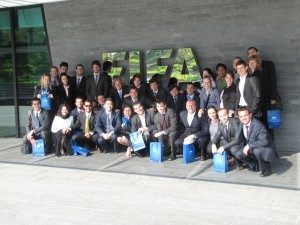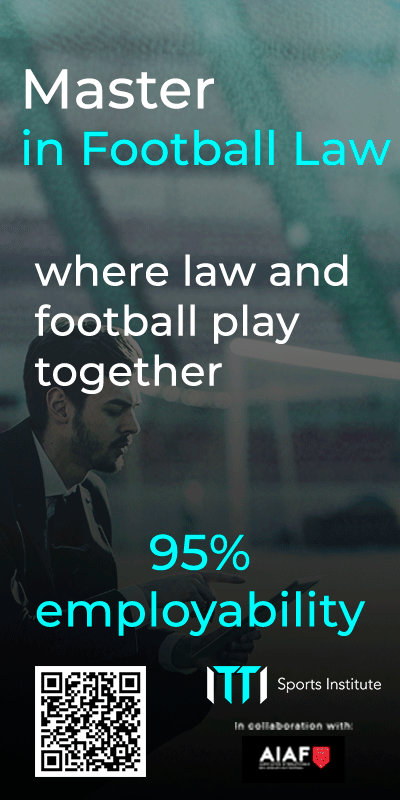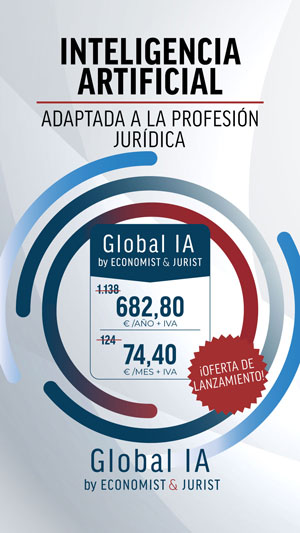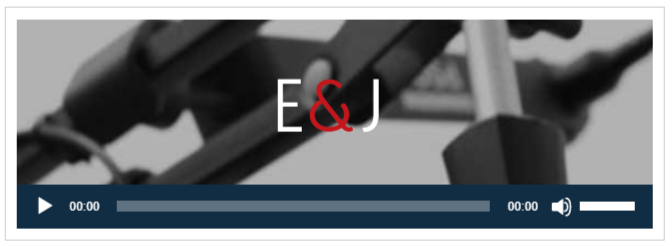The validity of a unilateral extension clause in favour of the football club

The validity of a unilateral extension clause in favour of the football club

Felipe Amaral Pestana · Lawyer – Confederaçao Brasileira de Futebol (CBF)
- Introduction
The use of a unilateral extension clause in a player’s contract in favour of the club is not an uncommon practice in the world of football. A player, when signing an employment agreement for a certain period of time, might grant the club the exclusive right to extend their relationship based on the latter’s sole discretion. The lack of regulation on the matter at an international level[1], highlighted by the silence of the FIFA RSTP[2] on that regard, has given the judicial bodies in football, mainly the FIFA DRC[3] and the CAS[4], the duty to investigate the subject and develop a certain path to be taken so such option clauses can be deemed valid and binding.
The purpose of this research is to identify such path. In the first chapter, the so-called Portmann Criteria will be analysed. In the second chapter, the relevant CAS jurisprudence on the matter will be scrutinized in the form of three important cases for the development of the subject: Bueno-Rodriguez, Kyrgiakos and Maxi Lopez. Finally, the third chapter will be dedicated to establish the crucial elements of validity of such option clauses, as well as proposing additional alternatives to be included in the provision in order to enhance its chances of being upheld in case of a future dispute over its applicability between the parties.

Master International Sports Law
www.isdemasters.com
Your gateway to the Worldwide Sports Law Industry
Imparted full time in English · Madrid
- The Portmann Criteria
The legal opinion of Professor Wolfgang Portmann[5], an expert report requested by the FIFA Director of Legal Services in 2007[6] and displayed in the article referenced below, has been often utilized as an indicative to the validity of a unilateral option clause in favour of a football club to extend a player’s contract. Its first notable use came in the award of TAS 2005/A/983, 984 (which will be further analysed on topic 3.1), when the panel expressly referred to the Portmann Criteria to determine the applicability of a national law to the case. At the FIFA DRC level, it was in the non-published decision of 12/01/07 that the Criteria was thoroughly utilized for the first time by the chamber[7], as the latter went through its five elements to directly determine the validity of a unilateral option clause. Such elements are the following[8]:
- i) The length of the maximum possible duration of the employment relationship is not excessive[9].
- ii) The renewal option must be exercised within an acceptable deadline prior to the expiry of the current employment [10]
iii) The player is not at the mercy of the club regarding the content of the employment contract.[11]
- iv) The salary reward arising from the option right is defined in the original contract.[12]
- v) The option will be clearly established and emphasised in the original contract so that the player is conscious of it at the moment of signing the contract.[13] [14]
According to Prof. Portmann, failure to comply with each of those five elements will result in a violation of public policy through an excessive commitment from the player to the club[15], thus deeming the unilateral contract extension clause to be non-reciprocal, arbitrary and, ultimately, invalid.
The legal opinion of Prof. Portmann on the validity of this type of clause under Swiss law has been referred to by several CAS Panels, although the weight attributed to it has varied to some degree. Nevertheless, it appears clear that it served as a basis for CAS to elaborate its own set of criteria as a guiding tool to analyse the specifics of each case. The connection between the Portmann Criteria and the approach taken by CAS panels when dealing with the matter is the topic of the next chapter.
- Relevant CAS Jurisprudence
3.1 The Bueno, Rodriguez Case[16]
The Uruguayan system, as it was set forth by its own collective agreement at the time, allowed the clubs to unilaterally extend their players’ contract for a total of two seasons. However, such extension would not be accompanied by a substantial increase to the player’s salary, as it would suffer a minimal raise according to the consumer price index[17]. In addition, in case the player refused to sign the extension, he would be placed on a list of suspended footballers called “Rebellion”, which meant that such athlete, while still being bound to the football club, would be deprived of his salary and his right to exercise his profession (playing or training).
Both Bueno and Rodriguez were placed on the above-mentioned list for not accepting the contractual extensions imposed by the Uruguayan club. Consequently, the players decided to sign with the French club Paris Saint-Germain, allegedly as free agents. Peñarol, however, claimed that Bueno and Rodriguez were still contractually bound to them, thus asking for compensation due to a breach of contract without just cause. The matter was then referred to the CAS after the DRC ruled in favour of the players, by deeming the right to unilaterally extend the contracts, as it was in Uruguay, to be invalid.
The panel expressly referred to the above-referenced legal opinion of Prof. Portmann reviewing the present case to determine that, even though the Uruguayan law should be applicable, it could be set aside if it violated the principles of international public policy (based on transnational values) or Swiss substantive law, which functions as a subsidiary legal source to the FIFA regulations, as set forth by the FIFA statutes in its article 66.
The panel understood that, even though the parties have the freedom to choose the applicable law, such is limited by public policy rules, either as set forth by PILA art. 190 or by analogical application of PILA art. 19[18]. Therefore, laws and collective bargaining agreements that exist at national level, despite being expressly applicable and relevant, as set forth by FIFA
RSTP art. 25.6, shall be set aside in case of violations to international standards of public policy and/or fundamental principles of Swiss law.
The panel added that national rules, such as the Uruguayan system of contractual extension, can only be applied if they are consistent or complementary to FIFA regulations, but not if they are contrary to them[19].
It was then a matter to determine whether the Uruguayan regulations were indeed against public policy, as they seemed to provide for an excessive and non-reciprocal commitment from the player to the club.
Thus, the panel compared the Uruguayan system to the one utilized in professional football prior to the Bosman Ruling, as it severely diminished the player’s freedom, as well as being completely against the spirit of the FIFA regulations constructed after 1995. The fact that the Uruguayan rules allowed the clubs to unilaterally extend a contract in terms that did not force them to do barely any kind of commitment, such as a substantial raise in salaries, as well as permitting an initially short employment relationship to be transformed in an excessively long one[20] (in a binding manner for the player until he reached the age of 27), makes such system inadmissible.
On top of that, the fact that a player can be deprived of his salary and opportunity to exercise his profession by being placed in the “Rebellion” list
for refusing to accept the extension violates elementary principles of protection of workers’ personality under Swiss law.
Therefore, the panel reached the conclusion that the Uruguayan system is incompatible to the legal framework that the FIFA regulations were designed to achieve, as well as being contrary to fundamental principles of Swiss labour law, since it subjects the employee to the arbitrariness of the employer, as the lack of adaptation or mechanisms binding both parties equally or reciprocally put the player at the mercy of the club. [21]
As for the Portmann Criteria, it is unclear, however, how much the panel relied on those elements to reach the conclusion mentioned above. The criteria is expressly referenced in the moment when the panel is deciding upon the admissibility of the Uruguayan rules as applicable law in the case. Nevertheless, when effectively determining the validity of the Uruguayan provisions on unilateral extensions, in its substance, the panel does not make the same express reference.
3.2 The Kyrgiakos Case [22]
Kyrgiakos and Panathinaikos signed a two-year employment contract on July 2001, valid until June 2003. The agreement provided for two unilateral
extension options in favour of the club, the first one for an additional two years (valid until June 2005), and the second one for an extra season (valid until June 2006).
The first extension was duly exercised by the club through a notification on 09/06/03 to the Player, who did not object to the contractual extension. The second extension, however, was not accepted by the athlete when notified on 13/06/2005, who did not show up to the team’s practices on July as expected by the club. After FIFA ruled in favour of the Player, the dispute was then appealed to the CAS.
Firstly, the panel highlighted that unilateral options, such as the one provided in the player’s contract, were expressly authorized by the Greek Sports law. However, the panel also noted that the CAS and FIFA jurisprudence tend to question such clauses. Moreover, no jurisprudence has declared the unilateral options to be null and void under all circumstances, as it is a situation that has to be analysed on a case-by-case basis.
The first issue to be decided by the panel was the acceptability of the total possible duration of the employment contract, which amounted for five years. As it coincides with maximum term allowed by the RSTP in its article 18.2, the panel stated that this issue, in itself, is not enough to discard the option clause. On top of that, the panel highlighted that “the Player was aware of, and expressly accepted, his commitment for such duration”.
Secondly, the panel noted that the employment contract provided for “substantial increases of the Player’s salary and bonus in connection with each extension of the contract” (25% salary increase and 66% bonus increase for the first option; 100% increase for both salary and bonus for the second option). Therefore, the contract obliged the club, in consideration of his right to retain the player for the full 5-year period, to largely increase the player’s remuneration, with such raise being entirely pre-determined in the original agreement. In addition, the club could not impose other conditions when exerting the options.
Thus, the panel considered that the player was contractually rewarded with a significant compensation in consideration of the right of unilateral extension given to the club, which is a crucial difference to the Bueno, Rodriguez case. The tribunal concluded that the unilateral option in favour of the club, as set forth by the contract, did not create an illegitimate situation which should lead it to be declared as null and void.[23]
Finally, the panel decided that the unilateral option was formally and correctly exerted by Panathinaikos, concluding that the Player breached his employment contract without just cause, being then liable to pay compensation in favour of the club.
It is noteworthy that, even though the panel never made an express reference to Prof. Portmann’s criteria, the elements of the latter were utilized, consciously or not, by the CAS in this case. The maximum possible duration of the contract was not considered to be excessive, as it amounted for five years. The renewal option was considered to be exercised within a reasonable time, as this was an argument of the Player which was not taken into consideration by the panel. It was considered that the Player was not at the mercy of the club since there were substantial increases in his salary, which were all defined in the original agreement. And finally, there was not a dispute regarding the fact that the unilateral option was clearly established and emphasised in the original contract.[24]
3.3 The Maxi López Case [25] [26]
On 17/08/2007, the Player entered into an employment relationship with the Russian club FC Moscow. On 16/02/2009, the Player, FC Moscow and Grêmio (hereinafter, the Club) signed a loan agreement, valid from the date of the signature until 31/12/2009, which contained an option to permanently transfer the Player in favour of the Club for a period of three years, with all
the remuneration due in each of those seasons already stipulated in the afore-mentioned agreement.
On December 2009, the Club attempted to exercise its option to permanently buy the Player, which was not recognized by neither the latter nor FC Moscow, leading to the Club to submit a claim of unilateral breach without just cause against the athlete. After the FIFA DRC ruled in favour of the Player, the dispute was brought before the CAS.
The panel understood that the clause did not represent a standard “unilateral extension clause under which a player is placed in a weaker position vis-à-vis the club”, even though the Player granted the Club the right to decide on whether or not to execute such clause, which was solely conditioned to the discretion of the Club (to pay compensation to FC Moscow). “However”, added the tribunal, “this per se does not lead to the conclusion that the Player was placed in a weaker position in relation to his freedom of movement or his personality rights, thereby invalidating the clause.” (par. 66)[27]. In other words, even if such clause is assumed to be a unilateral extension option, it is not persuaded that such nature could necessarily lead to its invalidity, as such interpretation must be done in a case-by-case approach.
The panel then expressly cited the Portmann Criteria as the basis of the jurisprudence constructed by the FIFA DRC to determine the validity of a unilateral extension clause. However, the tribunal added two extra elements to the criteria, based on “recent developments in the FIFA DRC and CAS jurisprudence”. Those elements are:
- The extension period should be proportional to the main contract;
- It would be advisable to limit the number of the extension options to one.
Then, the panel proceeded to make the following statement regarding the Portmann Criteria:
“Whereas the Portmann criteria may serve as a guiding benchmark in assessing the validity of unilateral extension clauses, the Panel, like its predecessors in CAS 2006/A/1157 and CAS 2005/A/973, is conscious of the need to not accord too much weight and value to the Portmann criteria at the expense of the very important specifics and circumstances behind each individual dispute.” (par. 76)[28]
By continuing to analyse the above-mentioned specifics and circumstances of the dispute, the Panel understood that the Player would benefit from a
significant increase in his remuneration, including a percentage of the fee to be paid to FC Moscow, as well as 50% of his economic rights. Also, the three-year employment agreement to be signed was reasonable because it is shorter than the maximum term of five years, as set forth by article 18.2 of the FIFA RSTP, even when combined with the previous one-year loan.
The panel then went through the Portmann Criteria, plus the two extra elements mentioned above, to further speak in favour of the validity of the option clause.[29]
In addition, the panel then dismissed the Player’s argument that the loan agreement prevented him from signing any other contracts without FC Moscow’s consent, based on the fact that the Player knew that he had “voluntarily pledged to sign a three-year employment contract with Grêmio after the expiry of the Employment Agreement. This pledge was perfectly in line within the provisions of Article 22 para. 1 CO[30], which states that [p]arties may reach a binding agreement to enter into a contract at a later date.” Also, the Player and FC Moscow were clearly not interested in continuing their contractual relationship.
Therefore, after analysing all the circumstances of the case, the panel concluded that the Player had breached his contractual obligations towards the Club, because the clause which allowed the club to transform a loan agreement into an employment relationship in a definitive basis was valid and binding, as it did not represent a disproportionate unilateral extension option in favour of the Club.
- Proper drafting of a unilateral extension clause
More often than not, a unilateral extension option in favour of a club was declared to be invalid by the CAS[31]. However, the decisions made on the Kyrgiakos and Maxi Lopez cases not only provide solid jurisprudence in the sense that these contractual provisions are acceptable, but also indicate the elements and requirements of validity of such clauses.
In any case, it is well established that a national law and/or collective bargaining agreement can be disregarded if it violates principles of international public policy, Swiss substantive law and/or the legal framework of the FIFA regulations. Thus, relying on the fact that unilateral options are allowed by national law or regulation to justify the validity of such clauses is a difficult point to make, and thus, not advisable.
Therefore, clubs willing to include a unilateral option in a football contract must focus on other aspects in order to significantly reduce the risks of it being declared invalid afterwards by a deciding body.
Firstly, the presence of the seven contractual elements brought up in the aforementioned jurisprudence (the five of Portmann and the additional two of Maxi Lopez) is a must. Those shall be seen as the fundamental characteristics of any unilateral option in favour of clubs, which cannot be forgotten when drafting the contract. Their importance is so relevantly proved throughout the jurisprudential development of the subject that it should even represent a topic of serious consideration to be included in the FIFA RSTP in the upcoming years, which would be extremely beneficial for the purposes of contractual stability, as well as contributing to avoid a number of potential disputes arising due to such lack of regulation.
However, despite its unquestioned importance in the evaluation of the matter, the Portmann Criteria cannot be considered as the ultimate blueprint to ensure the validity of unilateral extension options, as seen on the above-referenced jurisprudence[32]. Thus, the author would like to propose two alternatives to be possibly included, via a mutual agreement between the parties, in contracts including such clauses.
The previous chapter demonstrated that the main concern of the CAS when analysing such options is to make sure they do not represent an excessive commitment from the Player to the Club, which would make them potestative and, hence, illegal. The purpose of the following proposals is to present additional factors that shall contribute to establish a more equal bargaining power between the parties before the eyes of the deciding body, which would consequently increase the chances of the clause being upheld as valid and binding.
4.1 Establishing a buy-out clause
The main problem for a Player when granting a club with a unilateral right to extend his contract is not being able to objectively foresee his market value at the moment when such option will be potentially exercised by his employer. What if, at the end of the original contract, the Player learns that he would have been able to sign a significantly better deal with a third club (even considering the major financial upgrade received when the option clause kicks in), but sees himself tied with his current one due to the application of a valid unilateral extension clause by the club?
The insertion of a buy-out clause in the contract would allow the Player to be released from the extended contract in order to seek better opportunities in the open market, by paying his current club a previously agreed sum. Most importantly, as it was agreed by the parties in the original contract, the buy-out clause represents a mutual termination of the employment
relationship[33] [34], meaning that the Player would not incur in a violation of art. 17 RSTP (which would put him in danger of receiving sporting sanctions since the protected period would have renewed due to the contractual extension[35] [36], as set forth by the FIFA RSTP in its article 17.3). In the words of Omar Ongaro:
“If, however, the parties agree on a “buy-out clause”, then a right is conferred to the counterparty to prematurely terminate the contractual relation at any time against the payment of a fixed sum stipulated in the pertinent contract. The party that chooses to early terminate the contract by paying the agreed amount is therefore making use of a contractual right and it does not need to have a valid reason for putting an end to the contract. Obviously, this requires the party concerned to be ready to pay the agreed sum without any reservation or objection at all. A further consequence of the fact that the party is simply making use of a contractual.
right is that no sporting sanctions can be imposed on it, even if the termination of the contract occurs during the protected period[37]”.
Thus, it is utterly important to properly draft such buy-out clause in order to make it crystal clear that it arises out of a mutual agreement by the parties, which means that it does not need a contractual breach to be activated, as it shall not be confused with a liquidated damages clause. Hence, naming the clause as a “buy-out” is not sufficient: the wording of such provision is going to be the key factor in determining that its origin lies in the mutual agreement of the parties, and not in a breach of contract.[38] [39]
Moreover, the right given to the Player through the buy-out clause must be based on the club’s consent, rather than being an imposition of a law or regulation. Without such element of consent, the termination of the contract would not be considered to come from a mutual agreement of the parties.[40] Also, it is important to make sure the amount is proportionate to the player’s salary and his transfer value, otherwise it could be set aside by a deciding body if it is considered to be unreasonably excessive.[41]
4.2 Transfer clause with a right of first refusal
Establishing a transfer clause with a right of first refusal in favour of the club would also enable to player to assess his market value at the moment of the unilateral extension of the contract, but with the difference that it would protect the possibility for the club to actually keep the player, instead of simply receiving the sum defined in a buy-out clause.
Therefore, the Player would still be able to seek a better offer in the open market, however the Club would have the opportunity to match such proposal if it wants to retain the services of the footballer[42]. If not, a normal transfer would occur between the respective clubs, through the payment of a pre-determined transfer fee expressly set out in the original contract.[43]
Again, the proper drafting of such transfer clause is of great importance (even more than the “title” of the clause itself[44]), in order to make sure it comes from a mutual agreement of the parties, thus not being under the scope of article 17 for sporting sanction purposes. Also, the parties must be aware of the details highlighted in subsection 4.1, such as clearly establishing the club’s consent given in advance to the afore-mentioned transaction[45].
- Conclusion
The present research demonstrates that unilateral extension options in favour of football clubs are not generally invalid. In addition to the fact that they are not expressly prohibited by the FIFA regulations, the Court of Arbitration for Sport consistently understands in its jurisprudence that such provisions are not per se null and void, as they must be analysed on a case-by-case basis.
Over the years, the CAS has developed the footsteps to be followed in the assessment of these unilateral options, in order to determine their validity throughout a thorough dissection of the specific circumstances of each dispute, in the light of the good faith of the parties concerned.
As seen on the previous chapters, the ultimate goal of the CAS in such examination is to ensure that unilateral extension options are not arbitrary or potestative, in the form of an excessive commitment from the player to the club, which would make them invalid and, thus, unenforceable.
Therefore, clubs’ draftsmen must seek to set forth an equal bargaining power between the parties through the contractual elements discussed on this paper, as they will be the ones to establish that, on one hand, there are no unreasonable restrictions on the player’s freedom of movement and personality rights and, on the other hand, the principles of contractual stability, contractual freedom and pacta sunt servanda are duly protected.
- Bibliography
- AHO, Pekka Albert: Buy-out clause disputes under the FIFA Regulations – when to take action. May 23 2014. Available on: <http://www.lawinsport.com/articles/employment-law/item/buy-out-clause-disputes-under-the-fifa-regulations-when-to-take-action> (as last seen on 02 November 2015)
- BILIĆ, Andrijana: Contractual stability versus players mobility in Zbornik radova Pravnog fakulteta u Splitu, vol. 48, 4/2011. 10 September 2011
- CAS 2004/A/678: Apollon Kalamarias FC v. Oliveira Morais; Panel: The Hon. Michael J Beloff QC (United Kingdom), president; Mr. Pantelis Dedes (Greece); Mr. Paolo Roberto Murray (Brazil); 20 May 2005.
- CAS 2005/A/973: Panathinaikos Football Club v. Sotirios Kyrgiakos; Panel: Prof. Massimo Coccia (Italy), president, Mr. Patrick Lafranchi (Switzerland); Mr. Raj Parker (United Kingdom); 10 October 2006.
- CAS 2006/A/1157: Club Atlético Boca Juniors v. Genoa Cricket and Football Club S.p.A.; Panel: Mr. Peter Leaver QC (England), president; Mr. José Juan Pintó Sala (Spain), Mr. Jean-Pierre Morand (Switzerland); 31 January 2007.
- CAS 2007/A/1358-1359 FC Pyunik Yerevan v. L., AFC Rapid Bucaresti & FIFA; Panel: Mr. Rui Botica Santos (Portugal), President; Mr. José Juan Pintó (Spain); Mr. Michele Bernasconi (Switzerland); 26 May 2008
- CAS 2008/A/1519-1520 FC Shakhtar Donetsk v. Matuzalem Francelino da Silva & Real Zaragoza SAD & FIFA; Panel: Mr. Michele Bernasconi (Switzerland), president; Mr. Ulrich Haas (Switzerland); Mr. Jean-Jacques Bertrand (France); 19 May 2009
- CAS 2009/A/1773 Borussia Vfl 1900 Mönchengladbach v. Club de Fútbol América S.A. de C.V. (Asociación Atlética Argentinos Juniors/Argentina); Panel: Mr Lars Hilliger (Denmark), President; Mr Goetz Eilers (Germany); Mr Fernando Cabrera (Mexico); 3 November 2009
- CAS 2009/A/1856, 1857: Fenerbahçe Spor Kulübü v. Stephen Appiah; Panel: Mr. Efraim Barak (Israel), president; Mr. Michele Bernasconi (Switzerland); his Honour Judge James Robert Reid QC (England); 07 July 2010.
- CAS 2010/A/2098: Sevilla FC v. RC Lens; Panel: Prof. Luigi Fumagalli (Italy); Mr Stuart McInnes (United Kingdom); Mr Olivier Carrard (Switzerland); 29 November 2010.
- CAS 2010/A/2144: Real Betis Balompié SAD v. PSV Eindhoven; Panel: Mr Rui Botica Santos (Portugal), President; Mr Pedro Tomás Marques (Spain); Mr Manfred Nan (the Netherlands); 10 December 2010.
- CAS 2011/A/2356 SS Lazio S.p.A. v. CA Vélez Sarsfield & FIFA; Panel: Mr José Juan Pintó (Spain), President; Prof. Luigi Fumagalli (Italy); Mr Clifford Hendel (USA); 28 September 2011
- CAS 2013/A/3260: Grêmio Foot-ball Porto Alegrense v. Maximiliano Gastón Lopez; Panel: Mr. Rui Botica Santos (Portugal), president; Prof. Massimo Coccia (Italy); Mr. Efraim Barak (Israel); 04 March 2014.
- CAS 2013/A/3411 Al Gharafa S.C. & Mark Bresciano v. Al Nasr S.C. & FIFA; Panel: Mr. Luigi Fumagalli (Italy), President; Mr. Hendrik W. Kesler (the Netherlands); Mr. Michele Bernasconi (Switzerland); 09 May 2014
- COMPAIRE, PLANAS & WILDEMANN: Contractual Stability in Professional Football: Recommendations for Clubs in a Context of International Mobility. July 2009
- CRESPO, Juan de Dios: Contractual Stability in Football in the European Sports Law and Policy Bulletin Issue I-2011
- FIFA CIRCULAR LETTER 1171. Professional Football Player Contract Minimum Requirements. November 24 2008. As available on <http://www.fifa.com/about-fifa/official-documents/governance> (as last seen on 03 November 2015)
- FIFA RSTP. Regulations on the Status and Transfers of Players. Edition October 2015. As available on: <http://www.fifa.com/about-fifa/official-documents/law-regulations/index.html#doctransfersreg> (as last seen on 03 November 2015)
- FIFA RSTP COMMENTARY. Commentary on the Regulations for the Status and Transfers of Players. As available on: <http://www.fifa.com/about-fifa/official-documents/law-regulations/index.html#doctransfersreg> (as last seen on 03 November 2015)
- GEEY, Daniel: Buy-Out & Release Clauses in Football Contracts: The Basics, April 1 2004. Available on: <http://www.danielgeey.com/buy-out-release-clauses-in-football-the-basics> (as last seen on 02 November 2015)
- JELLINGHAUS, Steven F.H.; OLFERS, Marjan: Contract stability in The Netherlands in the European Sports Law and Policy Bulletin Issue I-2011
- LENZ, Marc Valentin: Contractual stability and transfer system from an economic point of view in the European Sports Law and Policy Bulletin Issue I-2011
- LEUBA, J-S et al.: Contractual Stability: Unilateral Options in CAS and Football: landmark cases, TMC Asser Press, 2012.
- LYNAM, Ian: Could Wayne Rooney and Yohan Cabaye ‘buy out’ their contracts? A sports lawyer gives his notes on the transfer window, including ‘buy-out clauses’ and the structure of player contracts. January 20 2014. Available on: <http://www.theguardian.com/football/charles-russell-sports-law-blog/2014/jan/20/rooney-cabaye-buy-out-contracts-premeier-league> (as last seen on 02 November 2015)
- McARDLE, David: Dispute Resolution in Sport: athletes, law and arbitration. Routledge, 2015. pp. 135-140
- ONGARO, Omar: Contractual Stability in Football in the European Sports Law and Policy Bulletin Issue I-2011
- PARRISH, Richard: Contract stability: the case law of the Court of Arbitration for Sport in the European Sports Law and Policy Bulletin Issue I-2011
- PORTMANN, Wolfgang, Unilateral option clauses in footballers’ contracts of employment: an assessment from the perspective of international sports arbitration, in 7 Sweet & Maxwell International Sports Law Review 2007 n° 1
- SWITZERLAND. Federal Act on Private International Law of 18 December 1987. As available on: <http://www.andreasbucher-law.ch/images/stories/pil_act_1987_as_amended_until_1_7_2014.pdf> (as last seen on 03 November 2015).
- SWITZERLAND. Swiss Civil Code Part Five: The Code of Obligations of 30 March 1911. As available on: <https://www.admin.ch/opc/en/classified-compilation/19110009/201507010000/220.pdf> (as last seen on 03 November 2015).
- TAS 2005/A/983, TAS 2005/A/984: Club Atlético Peñarol c. Carlos Heber Bueno Suarez, Cristian Rodriguez Barrotti & Paris Saint-Germain; Panel: Mr. José Juan Pintó (Spain), President; Mr. Omar Alejandro Vergara (Argentina); Mr. Jean-Pierre Morand (Switzerland); 12 July 2006
- de WEGER, Frans: “The Jurisprudence of the FIFA Dispute Resolution Chamber”. TMC Asser Institute. The Hague, the Netherlands. 2008.
- de WEGER, Frans; KROESE, Thijs: The unilateral extension option
[1] FIFA Circular Letter 1171, which briefly indicates that extension rights should be bilateral, is clearly drafted as a set of guidelines or recommendations only: it neither has binding power nor is interpreted as a rule by deciding bodies.
[2] As of the current (October 2015) version of the FIFA RSTP – Regulations on the Status and Transfers of Players.
[3] FIFA Dispute Resolution Chamber.
[4] Court of Arbitration for Sport.
[5] PORTMANN, Wolfgang, Unilateral option clauses in footballers’ contracts of employment: an assessment from the perspective of international sports arbitration, in 7 Sweet & Maxwell International Sports Law Review 2007 n° 1, p. 6-16.
[6] COMPAIRE, PLANAS & WILDEMANN: Contractual Stability in Professional Football: Recommendations for Clubs in a Context of International Mobility. July 2009, p. 42
[7] de WEGER, Frans; KROESE, Thijs: The unilateral extension option through the eyes of FIFA DRC and CAS in The International Sports Law Journal. T.M.C. Asser Instituut. 2011/1-2, p. 26 and 28.
[8] As seen on: de WEGER, Frans: “The Jurisprudence of the FIFA Dispute Resolution Chamber”. TMC Asser Institute. The Hague, the Netherlands. 2008. Pages 79-82.
[9] CAS Panels have defined “excessive” as any duration longer than the maximum term of 5 years as set forth by the FIFA RSTP in its article 18.2, as seen on each of the cases to be analysed in chapter 3 (TAS 2005/A/983 & 984, CAS 2005/A/973 and CAS 2013/A/3260).
[10] As seen on CAS 2013/A/3260 Grêmio Foot-ball Porto Alegrense v. Maximiliano Gastón López, par. 96: “(…)it is generally unreasonable for a club to wait so late (for example until only five days before the start of the transfer-period) before exercising its right to extend an employment contract with a player. The reason for this is understandable, because the club is entitled to inform the player whether or not it would be extending the employment agreement way in advance so that the player can take advantage of the transfer period and look for another club and thus avoid having to find himself unemployed in case the club decides not to extend his employment agreement.”
[11] In applying this criterion, CAS has suggested that the main aspect to be assessed is whether the extension option of the contract is tied to a relevant increase in the player’s salary (TAS 2005/A/983 & 984 par. 77) and that the clause does not give the club “unequal bargaining power” with “no apparent gain for the player” (CAS 2005/A/973, par. 21).
[12] Such salary reward means a significant raise in the Player’s wages due to the extension, which can be complemented with a signing bonus, contractual perks and/or other benefits to further equalize the afore-mentioned bargaining power.
[13] It is advisable, for example, to put the option clause in bold, as well as making the Player countersign the provision. As seen on De WEGER, Frans; KROESE, Thijs: The unilateral extension option through the eyes of FIFA DRC and CAS in The International Sports Law Journal. T.M.C. Asser Instituut. 2011/1-2, p. 31.
[14] Such element also establishes the player’s consent given in advance to the extension option, which is accepted by CAS, as seen on CAS 2010/A/2144 Real Betis v. PSV Eindhoven par. 52.
[15] CRESPO, Juan de Dios: Contractual Stability in Football in the European Sports Law and Policy Bulletin Issue I-2011, p. 340
[16] TAS 2005/A/983, TAS 2005/A/984: Club Atlético Peñarol c. Carlos Heber Bueno Suarez, Cristian Rodriguez Barrotti & Paris Saint-Germain; Panel: Mr. José Juan Pintó (Spain), president; Mr. Omar Alejandro Vergara (Argentina); Mr. Jean-Pierre Morand (Switzerland); Date: 12/07/2006; Applicable law: FIFA Regulations and Swiss Law subsidiarily.
[17] The officially reported annual increase of the cost of living in Uruguay, as seen on COMPAIRE, PLANAS & WILDEMANN: Contractual Stability in Professional Football: Recommendations for Clubs in a Context of International Mobility. July 2009, p. 28.
[18] PILA: Federal Act on Private International Law. Article 19 provides that a provision of another law, other than the Swiss one, can be taken into consideration if the aim and consequences of its application would lead to a decision that is appropriate to the legitimate and clearly preponderant interests according to the Swiss conception of law.
[19] It is essential that the rules governing the sport at an international level have a uniform character and are broadly consistent worldwide, in order to create a “lex sportiva”. Thus, the FIFA regulations shall not be applied differently from country to country, in observation of principles of rationality, security, equal treatment and legal predictability. Moreover, the FIFA regulations cannot waive an imperative norm of Swiss law if the consequences undermine essential and widely-recognized values of such legal order.
[20] Possibly with a contractual duration of over five years, which would be in violation of article 18.2 of the FIFA RSTP.
[21] In addition, the panel determined that the declaration of “Rebellion” shall be considered as a termination of the employment agreement without just cause by the club, as it empties the relationship of its basic elements.
[22] CAS 2005/A/973: Panathinaikos Football Club v. Sotirios Kyrgiakos; Panel: Prof. Massimo Coccia (Italy), president, Mr. Patrick Lafranchi (Switzerland); Mr. Raj Parker (United Kingdom); Date: 10/10/2006; Applicable law: FIFA Regulations and Swiss law, subsidiarily, with the exception of any issues related to the substance of the contract, which were decided in accordance with Greek law, as it was an agreement signed between Greek parties, for activities performed in Greece and taking into account Greek law and regulations only.
[23] In addition, another factor to the panel’s decision was that the player had implicitly accepted the second unilateral option in favour of the club at the moment he signed a loan agreement with Rangers FC (from 21/01/2005 to 30/06/2005), as the latter provided the Scottish club with an option to buy the footballer via a transfer fee. In other words, the player acknowledged he would be still under contract at the end of his loan agreement with Rangers FC, otherwise there would not be a transfer fee to be paid in favour of Panathinaikos.
[24] It is also noteworthy that, in this case, the Player had already accepted the first unilateral extension, which was undisputed by both parties throughout the proceedings. The panel did not expressly refer to this fact as a relevant factor to reach its conclusion, but it might have played a part.
[25] CAS 2013/A/3260: Grêmio Foot-ball Porto Alegrense v. Maximiliano Gastón Lopez; Panel: Mr. Rui Botica Santos (Portugal), president; Prof. Massimo Coccia (Italy); Mr. Efraim Barak (Israel); Date: 04/03/2014; Applicable law: FIFA Regulations and Swiss Law subsidiarily.
[26] Even though this case involves a loan with an option to buy, the Panel deliberately took the same approach as if it was assessing a situation of a unilateral extension of contract via an option clause, as the issue is essentially the same: a club claiming the validity of a contractual provision that entitles it to decide at its own discretion to keep a certain Player after the end of the latter’s original contract.
[27] Moreover, the panel highlighted the fact that the FIFA regulations do not contain any express provisions which prohibit the unilateral extension of contracts. Thus, decisions on such clauses by the CAS and the DRC have always been based on the spirit and legal framework of the regulations, concerning principles which prohibit “excessive and unwarranted restrictions on a player’s freedom of movement and personality rights”.
[28] The Panel also added the following: “CAS jurisprudence (for example CAS 2005/A/973) adopts a rather practical and constructive approach in assessing the validity of unilateral extension clauses, and lays emphasis on the principles of contractual stability / pacta sunt servanda / contractual freedom and good faith of the parties with a view to ensuring that a player’s freedom of movement or personality rights are not unduly or excessively restricted. In doing this, the CAS gives particular attention and consideration to the player’s conduct during the period leading to the negotiation of the alleged unilateral extension clause, and also the player’s conduct during the implementation of the contract.” (par. 70)
[29] These elements were assessed by the Panel as follows: i) The three-year term provided by the clause is not excessive, and the agreed second and third seasons are not dependent and/or subject to any unilateral decision from the Club; ii) The option was exercised within an acceptable deadline because the Player was still under contract with FC Moscow; iii) The Player would benefit of a significant increase in his remuneration; iv) The Player was not at the mercy of the Club. He confirmed his wish to continue playing for the Club until the end of 2009; v) The clause was conspicuously clear, and at no particular time did the Player raise any issue regarding its interpretation and/or his understanding of the same; vi) The clause does not represent a disproportional extension of his employment agreement with the Club. Even if it was an “extension”, it did not exceed the maximum period of five years; vii) the clause does not contain any further extensions.
[30] Swiss Code of Obligations.
[31] See, for example: CAS 2004/A/678: Apollon Kalamarias FC v. Oliveira Morais; CAS 2006/A/1157: Boca Juniors v. Genoa; CAS 2009/A/1856, 1857: Fenerbahçe v. Appiah.
[32] De WEGER, Frans; KROESE, Thijs: The unilateral extension option through the eyes of FIFA DRC and CAS in The International Sports Law Journal. T.M.C. Asser Instituut. 2011/1-2, p. 31.
[33] A consent rendered in advance by the club of origin to the early termination of its contract with the player is legally feasible. See CAS 2011/A/2356 SS Lazio S.p.A. v. CA Vélez Sarsfield & FIFA, para. 75(i).
[34] CRESPO, Juan de Dios in Contractual Stability in Football in the European Sports Law and Policy Bulletin Issue I-2011, p. 338.
[35] FIFA RSTP Commentary n. 3 to article 17 RSTP: “The parties may, however, stipulate in the contract the amount that the player shall pay to the club as compensation in order to unilaterally terminate the contract (a so-called buyout clause). The advantage of this clause is that the parties mutually agree on the amount at the very beginning and fix this in the contract. By paying this amount to the club, the player is entitled to unilaterally terminate the employment contract. With this buyout clause, the parties agree to give the player the opportunity to cancel the contract at any moment and without a valid reason, i.e. also during the protected period, and as such, no sporting sanctions may be imposed on the player as a result of the premature termination”.
[36] CAS 2013/A/3411 Al Gharafa & Bresciano v. Al Nasr & FIFA, par. 85: “As made clear by such definition [of buy-out clause in the Commentary, as described in footnote 35], which corresponds to standard practice in international football, the parties, while entering into a contract, may agree that at a certain (or at any) moment one of the parties (normally, the player) may terminate the contract, by simple notice and by paying a stipulated amount. In other words, one of the parties (ordinarily, the club) accepts in advance that the contract may be terminated: as a result, when the contract is effectively terminated, such termination can be deemed to be based on the parties’ (prior) consent. Therefore, no breach occurs, and the party terminating the contract is not liable for any sporting sanction. It is only bound to pay the stipulated amount which represents the «consideration» (or «price») for the termination”.
[37] ONGARO, Omar: Contractual Stability in Football in the European Sports Law and Policy Bulletin Issue I-2011, p. 45.
[38] CAS itself is not fully consistent about the definition of a buy-out. Instead, panels will analyse the wording in order to determine whether the parties sought to fix a predetermined compensation to be paid by the party in breach without just cause (a liquidated damages provision), or if the parties’ aim was to establish a mutually agreed provision based on a consent given in advance by the club to release the player in exchange of a predetermined fee (a buy-out clause). For example, as seen on CAS 2008/A/1519-1520 FC Shakhtar Donetsk v. Matuzalem Francelino da Silva & Real Zaragoza SAD & FIFA, par. 66 to 68 and CAS 2007/A/1358-1359 FC Pyunik Yerevan v. L., AFC Rapid Bucaresti & FIFA par. 23.
[39] Parties should keep in mind that, as seen on CAS 2012/A/3026, par. 89, “pursuant to Article 18 of the SCO there is no need to look behind the express Contract wording unless uncertainty exists due to “inexact expressions or designations.
[40] As seen on CAS 2010/A/2098 Sevilla FC v. RC Lens, par. 35 to 41.
[41] As seen on PARRISH, Richard: Contract stability: the case law of the Court of Arbitration for Sport in the European Sports Law and Policy Bulletin Issue I-2011, p. 94: “(…) the DRC and CAS have acknowledged that contractual “buy-out” clauses are unenforceable if they unreasonably penalise the player. The set figure should not simply be inserted into the contract to discourage the player from leaving, or a third party from acquiring him. The stated amount should be proportionate to the salary of the player or the original transfer value (…)”.
[42] CRESPO, Juan de Dios: Contractual Stability in Football in the European Sports Law and Policy Bulletin Issue I-2011, p. 340.
[43] GEEY, Daniel: Buy-Out & Release Clauses in Football Contracts: The Basics, April 1 2004.
[44] A transfer clause can also be known as a release clause.
[45] According to the principle “in dubio contra stipulatorem”, the party who drafted the transfer agreement is responsible for the choice of its wording and shall, therefore, bear the consequences of any unresolved ambiguity, as seen on CAS 2009/A/1773-1774 Borussia Vfl 1900 Mönchengladbach v. Club de Fútbol América S.A. de C.V. (Asociación Atlética Argentinos Juniors/Argentina), par. 26.



 Premium
Premium







